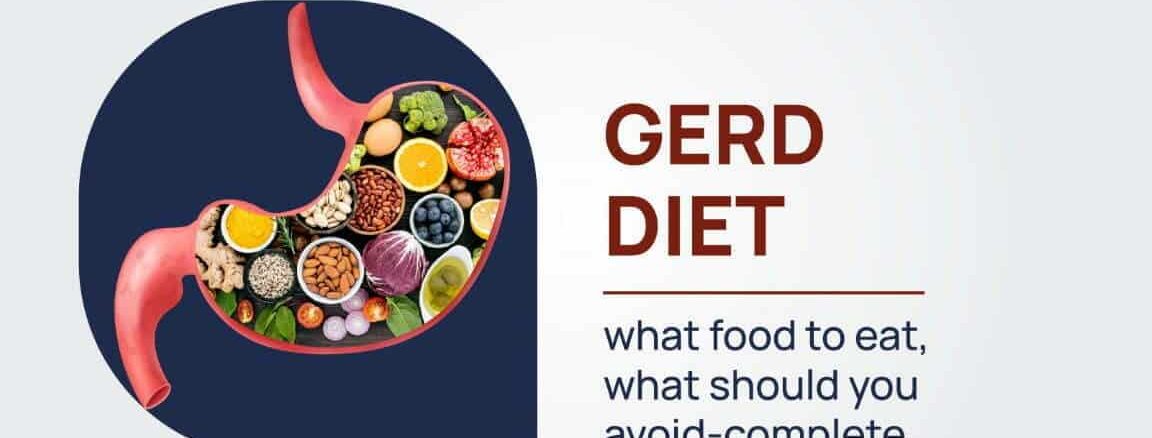The stomach contains acid to digest the food eaten after passing through the esophagus. Gastroesophageal Reflux Disease, also called GERD, is a condition when this acid gets refluxed back into the esophagus, causing a burning sensation and pain in the region.
While occasional heartburn is considered normal in adults, it is likely GERD when the burning sensation recurs more than two times a week. It can cause extreme discomfort, and patients can have difficulty eating normally. Associated symptoms include bloating, sore throat, burping, and dry cough.
Doctors may write prescriptions for over-the-counter antacids or other medicines to relieve the pain in the starting stages. But the critical and permanent line of treatment for GERD is to follow a healthy diet.
Foods to avoid
Food with high-fat content, foods that trigger acid production, and spicy or tangy are the common causes of GERD.
Avoid foods such as:
- Canned beverages
- Citrus fruits
- Chocolate
- Tomatoes
- Peppermint
- Fried/ oily food
- Pizza
- Chilli powder
- Onions & garlic
- High-fat meat like bacon, sausage
- Cheese
- Processed snacks
- Caffeine
- Whole fat milk
- Creams & sauces
Studies have also shown that consumption of alcohol and smoking are found to worsen the symptoms of GERD. It is a good idea to avoid these and the foods mentioned above to see substantial improvements in health.
Foods that prevent heartburn
Patients with GERD should consume foods that are simple to eat and digest. The following types of food can be eaten instead of high-fat or spicy foods to avoid acid reflux from the stomach.
Foods rich in fiber: Whole grain bread, brown rice, and oats
High-fiber vegetables: Asparagus, green beans, broccoli, cauliflower, spinach, sweet potatoes, carrots, and beans
Alkaline or not citrus fruits: Melons, bananas, berries, apples, peaches and pears
Meat low in fat: Grilled or boiled chicken, turkey, seafood, and egg whites
Healthy fats: Nuts, avocados, olive oil, sesame oil, and sunflower oil
Drinks: Lemon juice with honey and warm water, ginger tea without milk, and other herbal teas
Soups: Avoid drinking creamy soups and consume thin vegetable broth or meat broth soups
Foods with lots of water, like pumpkins, celery, and cucumber, can also be consumed.
This list is general advice for preventing GERD or reducing GERD symptoms. Depending upon the individual and the disease’s severity, some foods can or do not work for the patient. It is wise to experiment with what kind of foods soothe heartburn, prevent acid reflux, and stick to the diet.
Start with cutting down the foods to avoid altogether, and consume the above types of food. When the acid reflux reduces, the patient can eat small portions of other foods.
In general, avoid the following to prevent acid reflux or heartburn sensation:
- Avoid smoking and alcohol consumption
- Implement dietary changes
- Eat small quantities of food multiple times instead of large portions
- Consume less amount of food close to sleeping time
- Reduce the gap between meals
- Avoid being awake very late into the night or going to bed immediately after dinner
- Maintain a healthy weight
GERD is a disease that can be controlled by making healthy lifestyle changes. If the burning sensation and difficulty in consuming foods subsist even after implementing the necessary changes, consult a best Gastroenterologist in chennai immediately. The cause of the discomfort can be found using blood tests and imaging scans.

